Projects and flagship initiatives in India
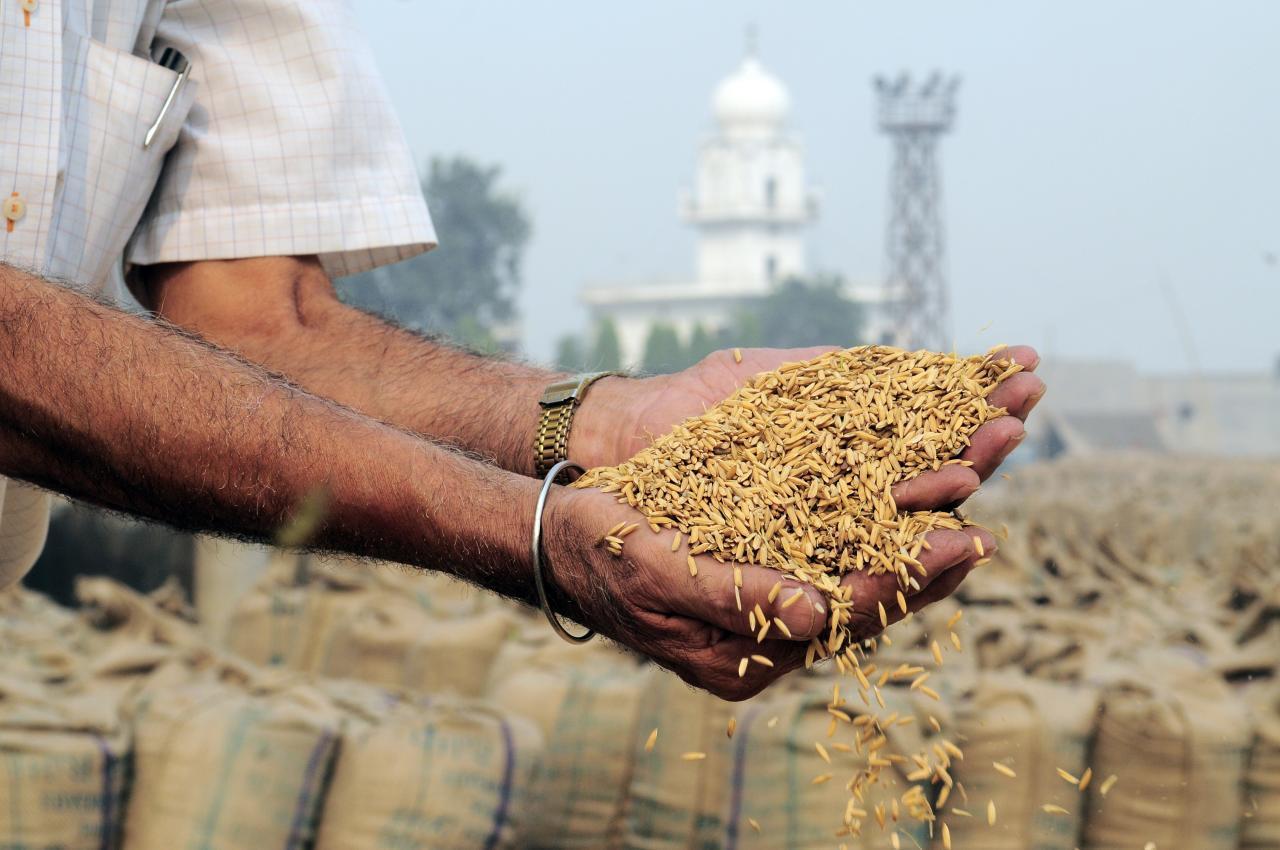
Direct contributions to our research areas in India, these projects and flagship initiatives in the country are creating positive impact in the livelihoods of communities where we work.
Mainstreaming local crop diversity
-
To safeguard local agrobiodiversity and environmental sustainability, the Alliance is working with various national and international research organizations in mainstreaming native crops and varieties while improving local seed systems. These include capacity building among farmers in conservation and management of native genetic resources, and improving farm to market links by developing value chains and promoting through brands such as Native Basket, Dhartee Naturals, Sahalee, Mountain Grains, Hill hatt, Gramouday, Natural Basket etc, .
-
Strengthening the role of community seedbanks in various districts and states in India improves accessibility to diverse and quality seeds of native crops and varieties and contributes to resilience building in rural areas. These interventions help communities build necessary tools and skills to combat food insecurity, malnutrition, poverty, and climate change.
Conserving fruit tree diversity
-
In the campaign towards food and nutrition security, the Alliance in India has been working across the rural to urban landscapes to improve knowledge access and production of diverse fruits in the country. This on-going engagement involves the distribution of fruit species and planting materials, as well as capacity building for plant propagation to schools and communities in the target areas.
-
The historical work in conserving tropical fruit tree diversity in India also explored the in-situ conservation of mango, citrus, and garcinia species and built an ex-situ collection of various fruit species, including unique accessions of jackfruit, cempedak, jamun, water apple, peanut butter fruit, strawberry guava, and mulberry among others. Key to this success is the engagement of self-help groups and farming communities in these initiatives.
Agrobiodiversity Index - India state-level applications
- The Agrobiodiversity Index (ABDI) is a tool developed by scientists working for the Alliance of Bioversity International and CIAT. It has a vision of using science and empirical evidence to quantify and measure the sustainability of the food system, and translate this into a quantitative index for farmers, businesses, and policy, in order to accelerate the adoption of sustainable and healthy food systems", details the news on the Food Planet Prize website. With this prize ABDI will be applied and downsize at country and state level in India along with Peru and Ethiopia. The Agrobiodiversity Index can be applied at state level to help understand 1) the state of knowledge on agrobiodiversity from seeds to farm to fork, 2) opportunities for diversity-based interventions to build resilience and reduce risks, 3) gaps between current policy commitments on agrobiodiversity and the ambition needed to meet global, regional or scientific targets.
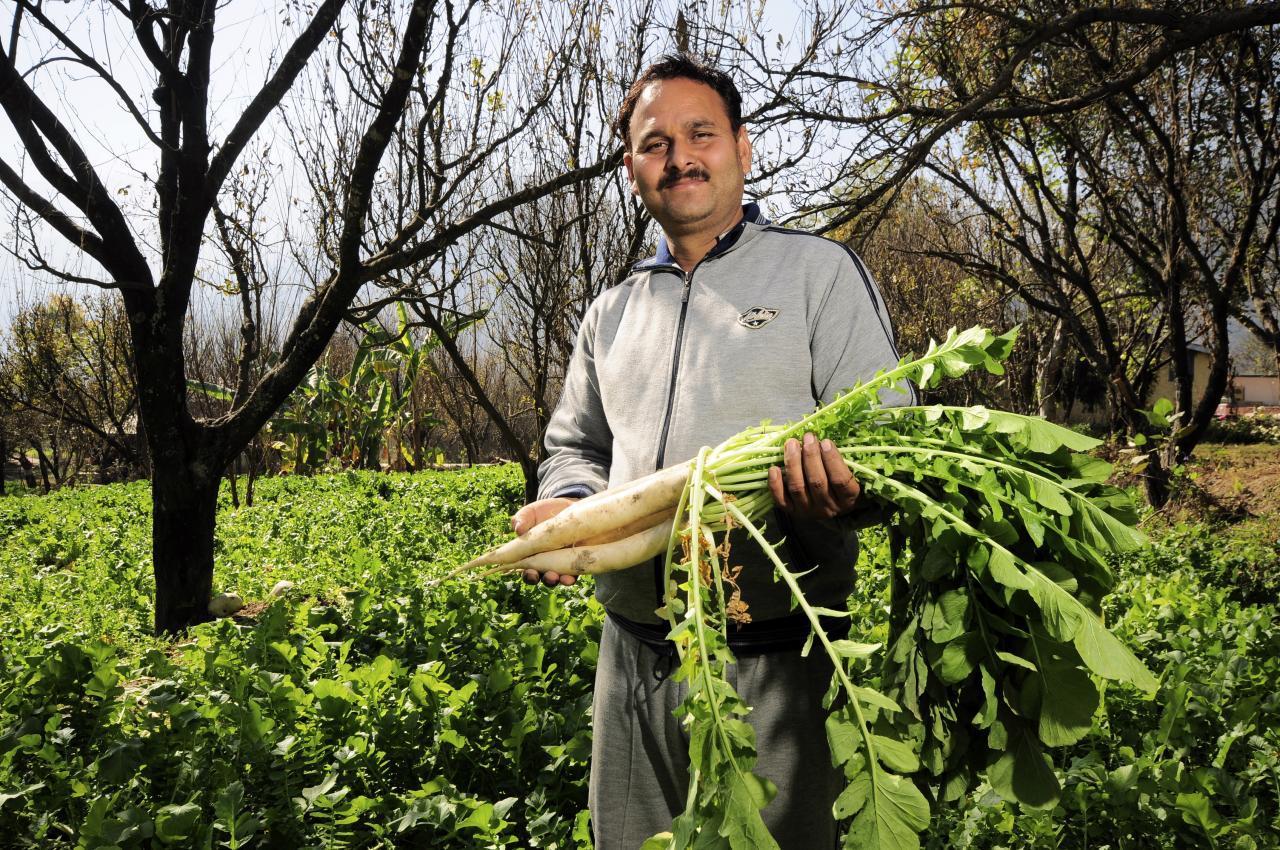
A dedicated farmer in India adopting sustainable and healthy food systems. Credit: Alliance of Bioversity International and CIAT/ Neil Palmer.
Studies on Ecosystem Services
- Studies on Quantitative Assessment of Ecosystem Services were carried out along the river Godavari to make a quantitative assessment of the impact of agriculture on terrestrial and aquatic ecosystem services to assist in developing alternate scenarios. The fish and aquatic insect diversities, water quality viz. pesticides, heavy metals & antibiotics content, socio-economic status and sediment retention/loss were studied. The alliance is expanding now the assessment of ecosystem services portfolio to include animals, insects, microbes and plants working closely with national partners.
Supporting production systems
- We are supporting the extensive work in agrobiodiversity through four important commodities in India: cassava, banana, beans, and forages. Through several initiatives, we are evaluating, characterizing and promoting varieties of cassava, banana, forages, and beans with specific traits that are resilient to biotic and abiotic stress, and also assessing forages with the potential to restore degraded lands and improving livestock nutrition.
Building conservation strategies
- As agriculture and the environment play a crucial role in regulating ecosystem services, the Alliance uses tools like the Agrobiodiversity Index to investigate the status and interactions between species and the environment, including the socioeconomic impacts on communities in biodiversity hotspot areas to devise relevant scenarios for biodiversity conservation and management.
-
We have also supported India’s key development priorities in agriculture by building knowledge and understanding with key experts on agrobiodiversity conservation and management that include techniques in conserving plant genetic resources, participatory approaches in mainstreaming crop diversity, pest and disease monitoring, improving value chain development for heirloom crop and varieties. The Alliance has also facilitated the germplasm accession of biofortified lines of common beans to national partners through our ground-breaking genebank, Future Seeds.
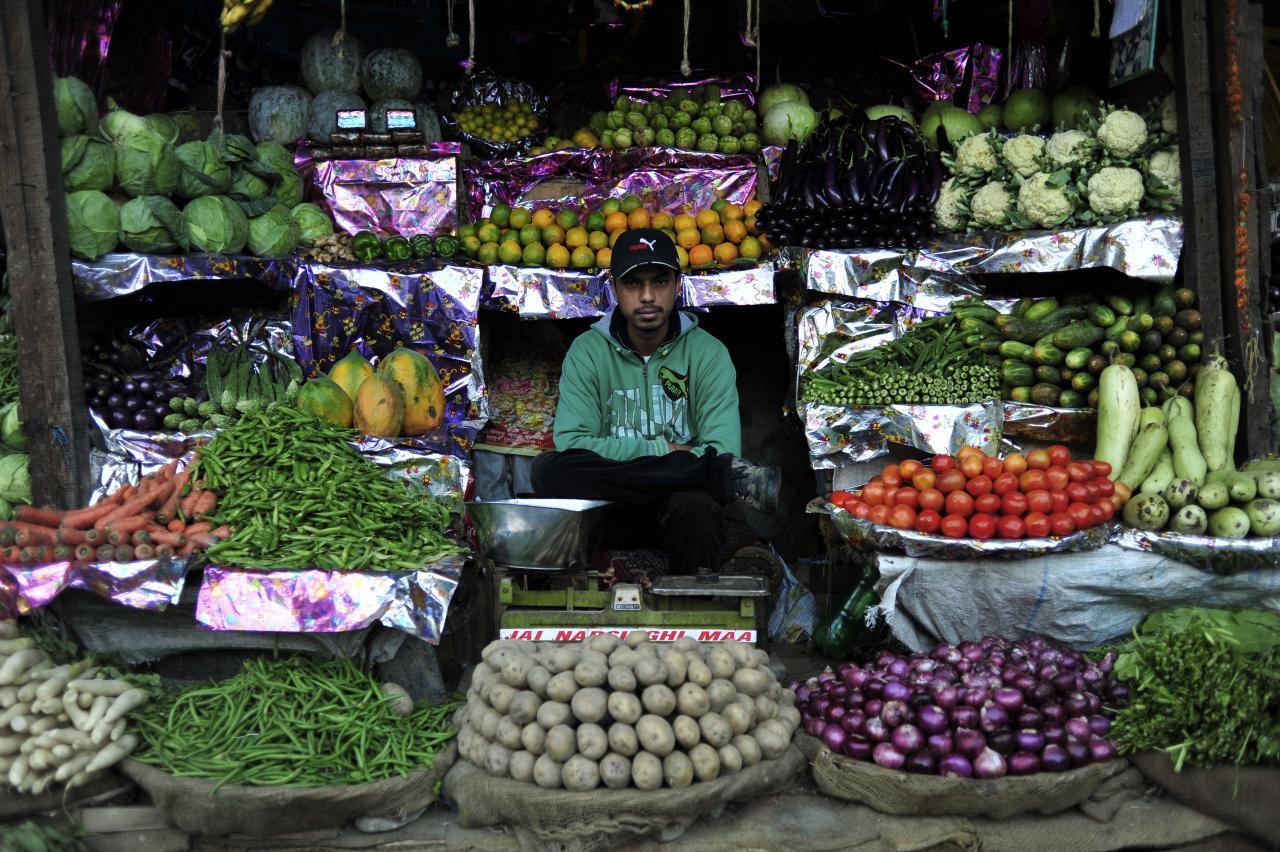
Harvesting the fruits of sustainable agriculture practices in India. Credit: Alliance of Bioversity International and CIAT/ Neil Palmer.
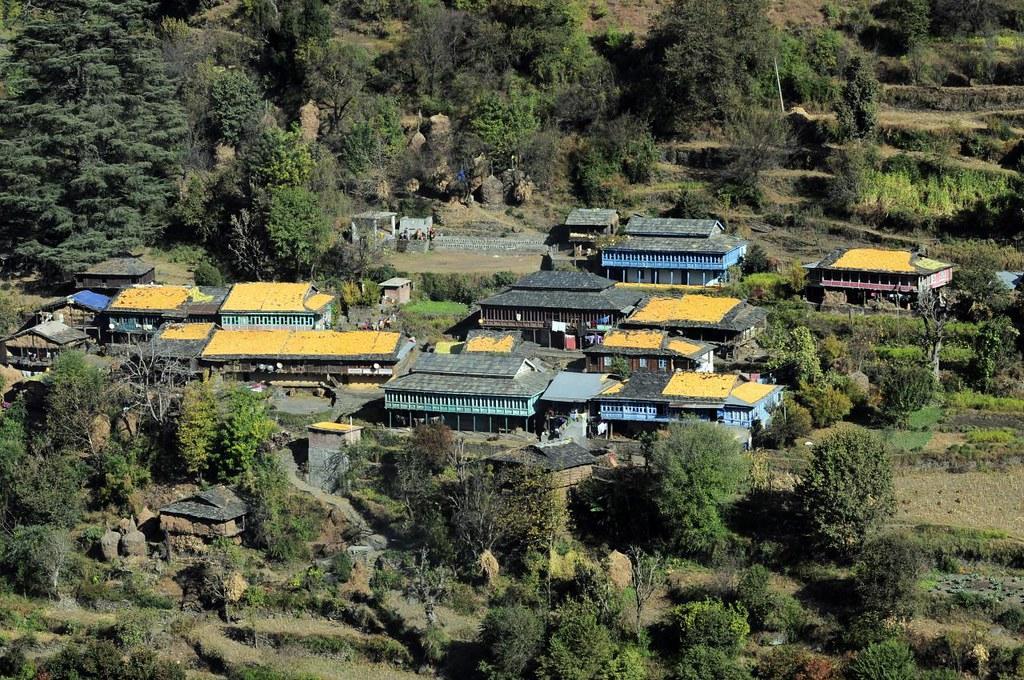
Forested lands restoration in India. Credit: Alliance of Bioversity International and CIAT/ Neil Palmer.
Designing decision support tools for restoration
- We have developed a scalable and climate-smart digital solution that combines DiversityForRestoration (D4R), and mobile app technology myfarmtrees (MFT), to assist restoration practitioners with case-specific selection of the most appropriate tree species as well as document and verify seed sources for restoring tropical forest landscapes, currently being adapted for India. These tools support restoration in forested lands and degraded agricultural and agroforestry areas that have the potential to mitigate climate change and improve livelihood and ecosystem services.
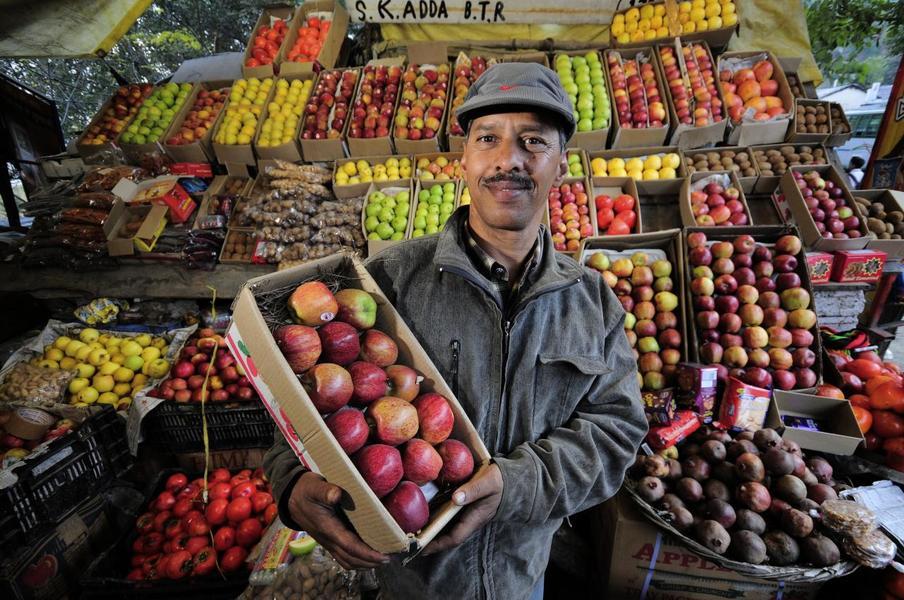
An Indian farmer innovates with climate-smart techniques to ensure sustainable agriculture.
©Alliance of Bioversity International - CIAT/Neil Palmer
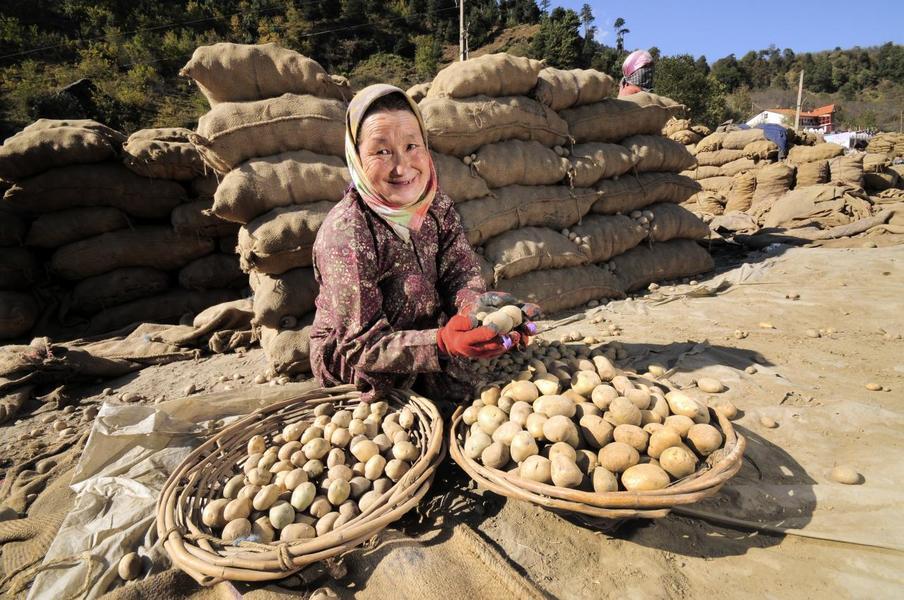
The breathtaking backdrop of Himachal Pradesh, India, serves as a testament to the perseverance of farmers in implementing climate-resilient agricultural methods.
©Alliance of Bioversity International - CIAT/Neil Palmer

In the tranquil expanse of Himachal Pradesh, India, agricultural communities adapt to climate fluctuations, integrating innovative practices for a sustainable future.
©Alliance of Bioversity International - CIAT/Neil Palmer
CGIAR Initiatives
Agroecology
-
In cementing radical shift towards an ecologically, economically, and socially sustainable food systems, the Alliance is providing support in scaling up ongoing activities and appropriately redesigning farming systems in the Anantapur district of Andhra Pradesh state and is expanding its activities in Mandla district of Madhya Pradesh state in India. Under this CGIAR initiative, the Alliance seeks to improve soil and water management in the area and empower farmers as they convert from conventional to natural farming methods.
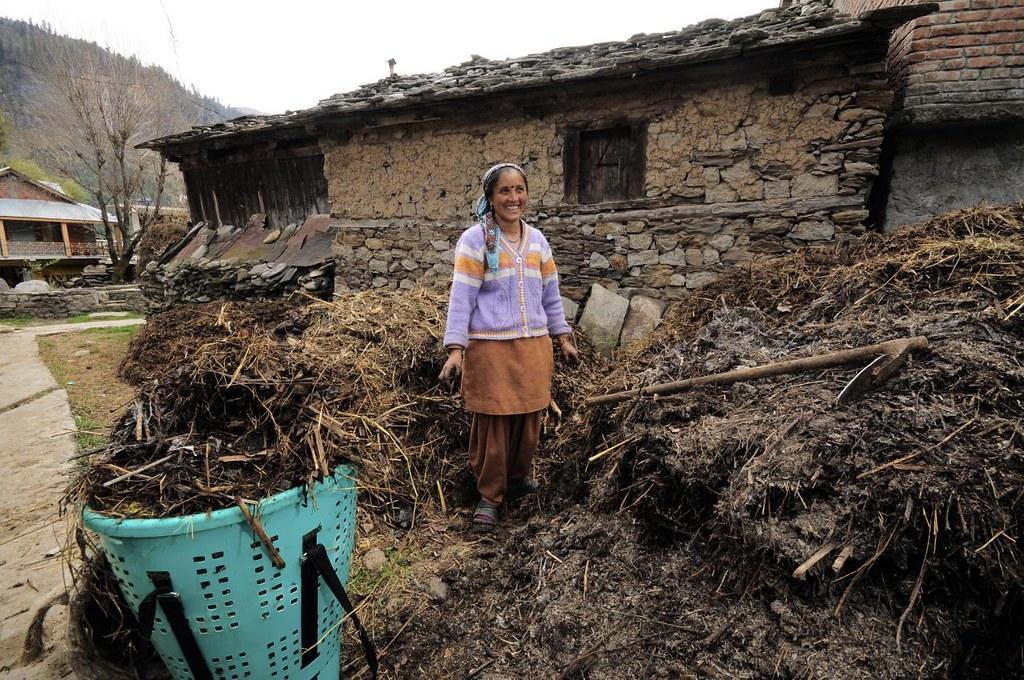
Amidst India's agricultural heartland, a dedicated farmer demonstrates an innovative soil and manure management technique, weaving sustainability into every harvest. Credit: Alliance of Bioversity International and CIAT/ Neil Palmer.
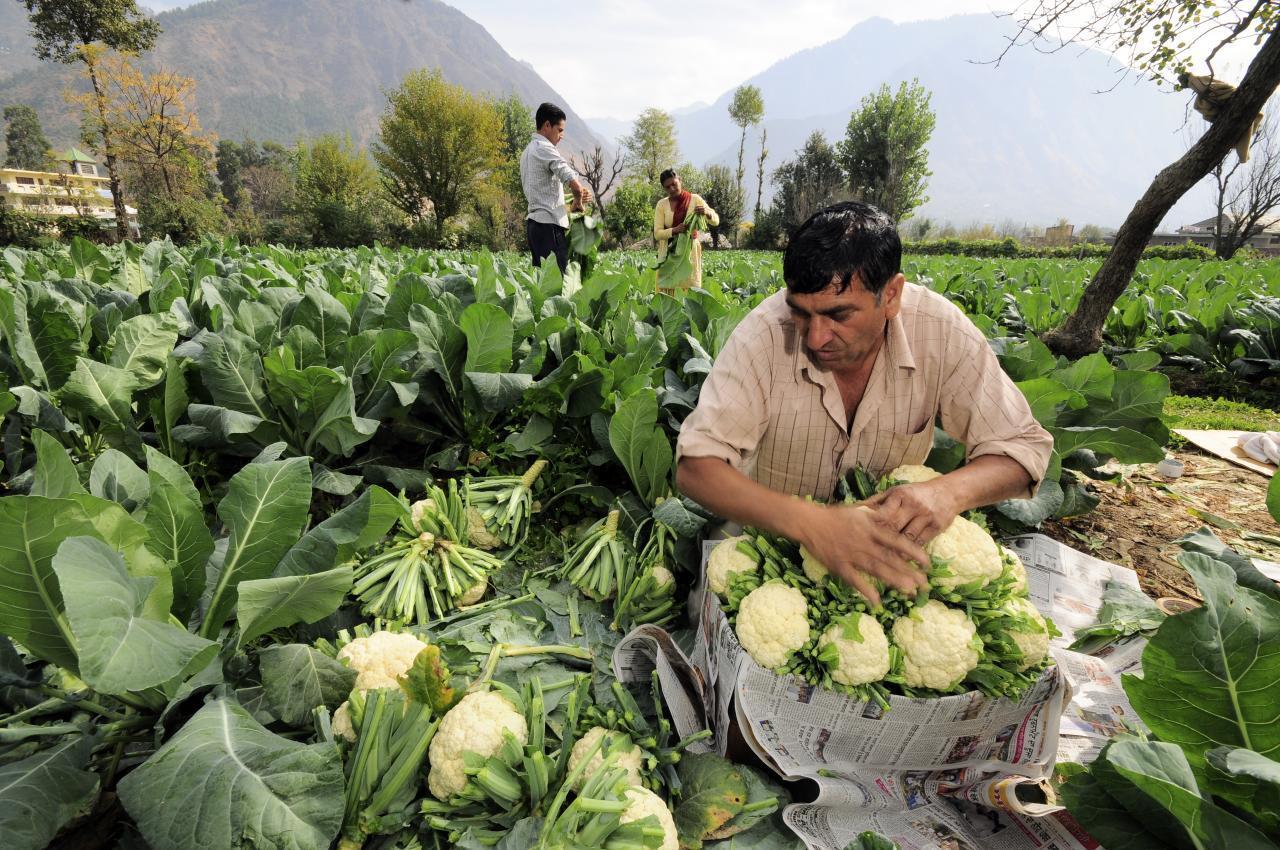
Witnessing the resilience of indian local farmers as they navigate the challenge of agrobiodiversity loss through adaptive agricultural practices. Credit: Alliance of Bioversity International and CIAT/ Neil Palmer.
Nature-Positive Solutions
-
In India, the NATURE+ initiative zeroes in on Nandurbar and Ahmednagar districts of Maharashtra state, both of which are tribal regions located along the Western Ghats biodiversity hotspot. As the majority of the small and marginal tribal families practice rainfed agriculture, with high dependence on forest products for livelihood, the region remains vulnerable to land degradation due to heavy soil erosion, faulty cultivation methods, and loss of vegetative cover. Under this CGIAR initiative, the Alliance and partners are consolidating efforts to address the urgent challenge of agrobiodiversity loss that is threatening the very basis of the agrifood systems and vital soil and freshwater resources in keystone ecosystems; sustainably manage biodiversity and other natural resources; and use Nature-Positive Solutions as cost efficient models for community land restoration responsible for provisioning of various ecosystem services that are vital for ecosystem resilience.
Transforming Agri-Food Systems in South Asia
- As an integrative initiative to support actions that improve equitable access to sustainable healthy diets, improve farmers’ livelihoods and resilience, and conserve land, air, and water resources in South Asia. We focus on ten learning locations for focused research and engagement and from which scaling-out to similar environments is possible. Six of ten sites span an east-to-west gradient of poverty, climate, and groundwater resources availability in the irrigated or semi-irrigated rice-based farming systems including locations in the Indo Gangetic Plains of India’s Haryana and Bihar States, in rainfed mixed farming systems in Odisha State and rainfed rice-fallows in Assam. These locations are prioritized since they are hotspots related to poverty, climate, malnutrition, environment, and social inclusion thus experiencing disproportionate impacts from climate change, groundwater depletion, rural out-migration, and crop residue burning air pollution. Under this initiative, we are contributing to the research question on how agricultural landscapes can be managed to increase crop diversification, nutritional yields and agrobiodiversity, while maintaining or augmenting ecological services.
NEXUS Gains
- As multiple interlinked global crises persist at the backdrop of climate change and biodiversity loss, the CGIAR NEXUS Gains initiative strives to develop research and promote systems thinking to realize targeted benefits within the intersection of water, energy, food, and ecosystems across select transboundary river basins in Asia and Africa. The Alliance in India works with several stakeholders at various scales and sectors to bolster system-level productivity and combat the increasing challenges of reduced groundwater and surface water availability, pollution, and environmental degradation around South Asia’s breadbasket basin: Ganges basin.
Other CGIAR Initiatives
- Asian Mega-Deltas, Digital Innovation, Foresight and Metrics, Gender Equality, National Policies and Strategies, Plant Health, and Sustainable Healthy Diets.
